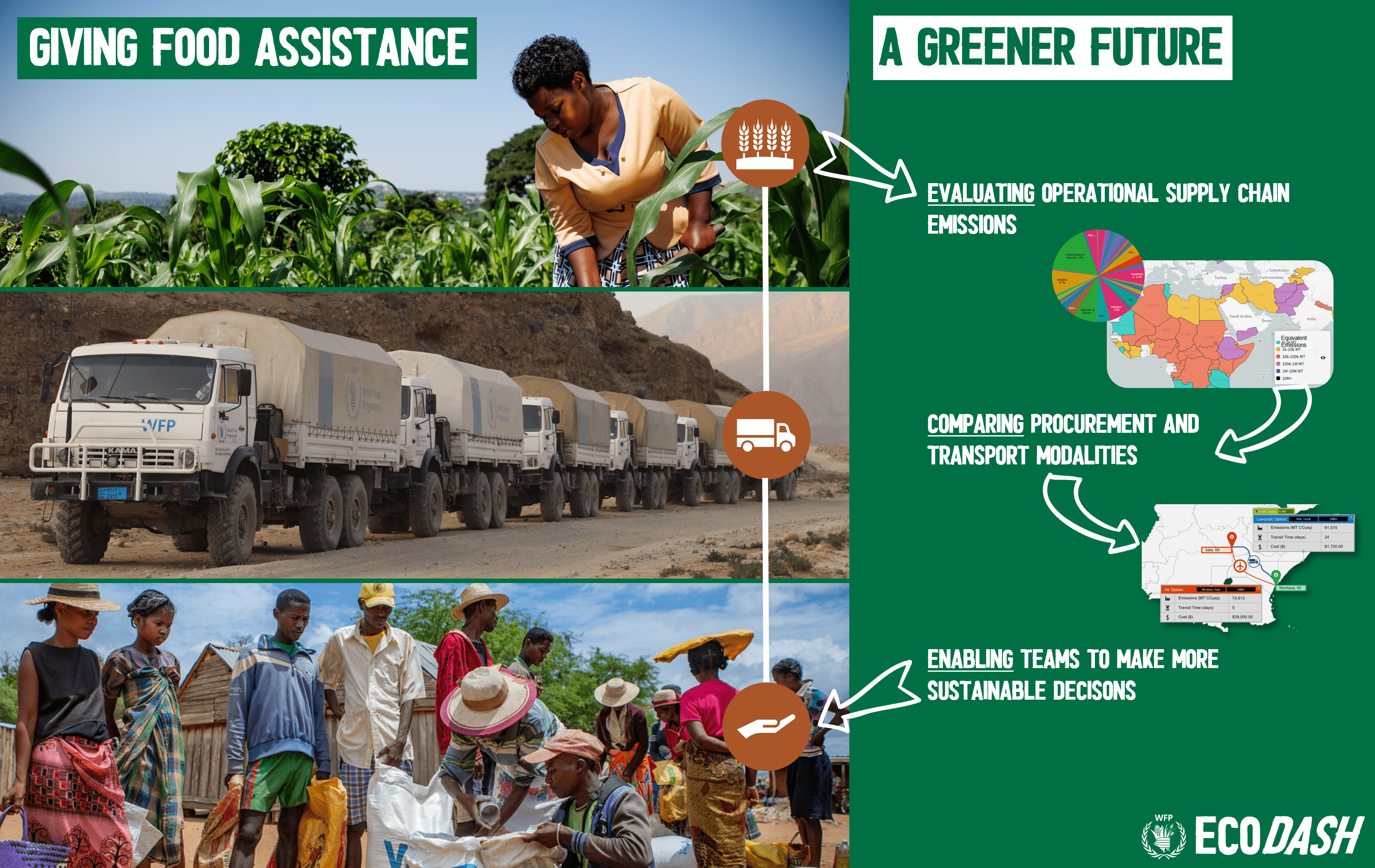Despite their life-saving qualities, the nature of humanitarian operations sometimes causes adverse impacts such as emissions contributions, environmental degradation and the depletion of local resources. Supply chain officers may not have the tools or capacity to incorporate sustainability efforts easily into their decision making processes while keeping vital operations going.
Project overview
ECODASH is a tool for measuring, monitoring and analysing the carbon emissions from WFP supply chain operations. This will enable WFP supply chain officers to make informed, sustainable decisions to reduce our carbon footprint and limit the negative environmental impacts of our operations.
ECODASH is a comprehensive, organization-wide environmental impact measurement and optimization tool focused on carbon emissions for WFP supply chain. It combines existing WFP operations data, such as procurement, shipping, transport and handovers to cooperating partners, with relevant emissions factors to calculate the carbon emissions of supply chain activities in detail.
ECODASH provides data and insight input to key supply chain processes for planning, procurement and logistics management. Supply chain officers can use ECODASH to baseline and report the carbon footprint of their operations, evaluate emissions reductions related to efficiency initiatives and evaluate alternative options within their operational areas.
The tool will facilitate easy access to data on the environmental costs of different procurement, transport and route modalities.
It follows the principles and methods outlined by internationally recognized standards for greenhouse gas reporting such as the Greenhouse Gas Protocol and General Logistics Emissions Council frameworks.

ECODASH has calculated emissions for two WFP regions, as well as for procurement and shipping units. ECODASH has identified 4.08 metric tons of CO2 emissions that could be eliminated through more sustainable procurement practices over the next five years, reducing total supply chain emissions by approximately 16 percent.
WFP is currently planning to integrate ECODASH into three separate tools - Optimus, SCIPS and PO Execution Report - which work on food purchasing, food assistance planning optimization and food procurement orders. This early-stage tool is expected to facilitate easy access to data on the environmental costs of different procurement, transport and route modalities.


